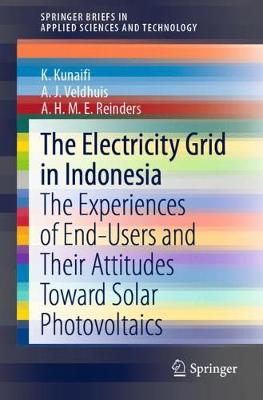SpringerBriefs in Applied Sciences and Technology
1 total work
The Electricity Grid in Indonesia
by K. Kunaifi, A.J. Veldhuis, and A.H.M.E Reinders
In 2017, nearly 60 million households in Indonesia were connected to the national power grid. Accordingly, we believe that their 'voice' is important to maintain democratic and participatory values in planning electricity services. However, what is actually the voice of electricity users in Indonesia? Also, what can we learn from it when looking at the fitness of the electricity supply in Indonesia in the context of costs, reliability, and environmental aspects?
This book presents the real experience of households, some of the grid users in Indonesia. Through a series of surveys in 2017, households in three cities in Western, Central, and Eastern Indonesia shared their experiences and preferences regarding their electricity supply. They offered their opinions about the stability and reliability of electricity supply, how they coped with blackouts, and what impacts power interruptions had on their daily lives. Because of the frequent power outages, the users started to think about the importance of having a back-up power generator at home. Given that Indonesia has high solar irradiance the whole year through, we also observed the users' attitudes toward solar photovoltaic (PV) systems.
The book starts with a brief introduction about Indonesia followed by the status and challenges of power supply in the country. Then, in the middle section, the users' voices are presented. Finally, the potential of PV systems, as a promising solution to increasing electricity access and improving the reliability of electricity supply in this tropical country, is presented. We believe that this book provides useful information for the transition to the use of solar energy in energy systems in Indonesia, which is meant for academia, electric utility companies, PV system actors, policymakers, and of course, households in Indonesia.
